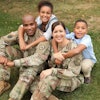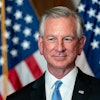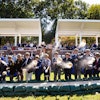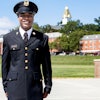Thousands of historians, public school teachers and others committed to learning about the role of African-Americans in times of war will gather at the 103rd Annual Meeting and Conference of the Association for the Study of African American Life and History (ASALH) in Indianapolis next month. 
Commemorating the centennial of the end of “The Great War,” the conference will explore the paradoxes of war and the Black liberation struggle for freedom and equality abroad and at home in America.
“We look at war in the United States as a way to say, ‘What does it mean to love your country, and yet, have unrequited love returned?’ or ‘What does it mean to love your country and proudly wear the uniform of your country?’” said Dr. Evelyn Brooks Higginbotham, president of ASALH and the Victor S. Thomas Professor and chair of History and African and African-American Studies at Harvard University.
Recalling instances of Black soldiers fighting in the Revolutionary War, the Civil War and the World Wars to make “the world safe for democracy” throughout the nation’s history, Higginbotham noted that Black soldiers came to realize that “America isn’t safe for democracy and they certainly aren’t safe in America.”
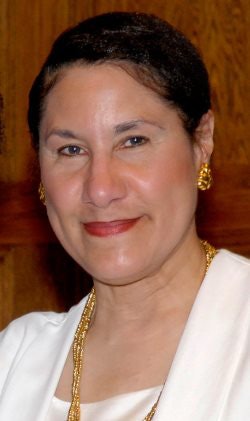 Dr. Evelyn Brooks Higginbotham
Dr. Evelyn Brooks HigginbothamThe conference will dive into the paradoxes of Black soldiers, veterans and civilians’ experiences in wartime with plenary sessions, an African-American Heritage Bus Tour, a film festival, luncheons and a banquet featuring historic oral archive interviews with former Black military members. This year’s honorary conference chair is Brigadier General Wayne Black, Assistant Adjutant General of the Army, Indiana National Guard.
Thursday’s luncheon is a “Salute to Veterans” where the Vietnam War Commemoration will pin veterans who served from 1955 to 1980. Judge Robert L. Wilkins will speak about the history of establishing the National Museum of African-American History and Culture.
The Carter G. Woodson Luncheon on Friday will include a conversation between Drs. Ibram X. Kendi and Heather Ann Thompson, scholars writing on race in America and the crisis of mass incarceration.
Dr. Erica Armstrong Dunbar will speak about the Revolutionary War era and the enslaved woman who escaped from President George Washington during Saturday’s joint luncheon between ASALH and the Association of Black Women Historians.
Finally, Julieanna Richardson, founding director of The HistoryMakers, will speak at ASALH’s Annual Banquet, sharing oral interviews in her archive from the likes of General Colin Powell and other Black military members who played a role in America’s wars.
There will also be plenary sessions titled, “Against US Imperialism: Pan-Africanism and Black Internationalism, 1900-2016” and another, “African Americans and the Great War,” featuring Dr. David Levering Lewis, a history professor at New York University.
Additionally, conference-goers can attend presidential sessions where local ASALH branches share their undertakings, including their connections and work with “Hidden Figures,” the Montford Point Marines, Black women’s auxiliary corps and youth’s oral history projects on military members.
Higginbotham hopes that individuals come away from the annual meeting and conference with a collective appreciation for African-American history and for the work of ASALH’s founder Dr. Carter G. Woodson. Further, she encourages individuals to understand that wars in America have always brought about certain levels of progress, but they’ve also brought about certain levels of setback.
“It’s important to just remember both, to not forget the progress that was made but also not to forget the struggles that need to be continued,” she said.
From every single war since the Revolutionary War, Higginbotham can identify historic voices that have said, “This war is incomplete because it does not bring about real equality and real liberty and real justice for all.”
“And so that’s our protest still, and yet we can love our nation, and we want to make it better,” Higginbotham said.
The 103rd Annual ASALH Meeting and Conference will take place from October 3-7, 2018 in Indianapolis, Indiana.
Tiffany Pennamon can be reached at [email protected]. You can follow her on Twitter @tiffanypennamon.

